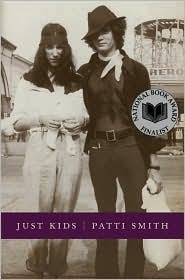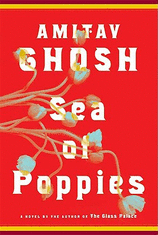 Bunting Institute Fellowship at Harvard/ Radcliffe, a Whiting Foundation Grant-in-Aid, the Joseph Kesselring Award for Drama, a New England Emmy, and a Quebec Cinemateque Award.
Bunting Institute Fellowship at Harvard/ Radcliffe, a Whiting Foundation Grant-in-Aid, the Joseph Kesselring Award for Drama, a New England Emmy, and a Quebec Cinemateque Award.Harrington teaches playwriting at MIT where she was awarded the 2009 Levitan Prize for Excellence in Teaching. She is also a frequent guest artist at Tufts, Harvard, Wellesley, and the University of Iowa.
Alice Bliss, her new novel, debuts in May.
Earlier this month I asked Harrington what she was reading. Her reply:
I read the first one hundred pages of Colum McCann’s Let the Great World Spin when it first came out. Brand new book. On loan from the library for two weeks. Great anticipation. I had that feeling on page one that you occasionally are lucky enough to experience … this is going to be amazing. And you let yourself go, you slide into this imagined world and it is so rare and so delicious that you slow down so that you can savor the pleasure. I fell madly, deeply in love with the main character, Corrigan, or at least I thought he was the main character. Until he died unexpectedly on page seventy-two. I turned the page and I was introduced to another group of characters. Wait a minute, I remember thinking, you can’t do this to Corrigan. You can’t do this to me. I felt terribly upset, but read on, thinking, Corrigan will come back. There will be flashbacks, we’ll bury him and grieve him at least. It did not help that the new character introduced on page seventy-three, Mrs. Soderberg, in a penthouse on Park Avenue, was not initially very interesting or compelling. Paralyzed with grief over the loss of her son in Viet Nam, she seemed shallow, neurotic and dithering. I should care, I should sympathize with this woman, but wait – where’s Corrigan in all this? Where’s the thread, the connection, where is he?Read an excerpt from Alice Bliss, and learn more about the book and author at Laura Harrington's website and blog.
I felt betrayed. The author had broken his contract with me. I returned the book to the library and took out another of McCann’s books: This Side of Brightness. Which I read and thought yes, all the people who say this is a beautiful book are right. The intelligence, the structure, the intriguing nature of the story. But I didn’t believe a word of it. The characters never became real to me, they were constructs, ideas; they had no flesh and blood. The voices were, to my ear just slightly “off.” A very good imitation, a facsimile. Not the real thing.
So flash forward a few years and Let The Great World Spin comes into my house again. I pick it up. I get past page one hundred. I still mourn Corrigan but this time I follow the story that is, rather than longing for the story that is not. The voices are true and full blooded, the book skillfully crafted, the threads that connect charactersand storylines – some slender, some strong –- are well wrought. But the beating heart of the book, the center of the book, is Corrigan, and he is gone.
Why does Corrigan haunt me so? He is pure-hearted and deeply flawed; he is so shockingly alive in the book it is impossible to accept his death. It is the death of a brother, too young to die, too essential both to those whose lives he touches in the novel and to me.
It seems I need to accept the fact that McCann’s novel is about the city and a period of time in that city. It has an ensemble cast instead of a main character or two and a supporting cast. Perhaps that breadth of focus, that ensemble feeling, is both the book’s strength and its weakness. At least for this reader.
--Marshal Zeringue





















































